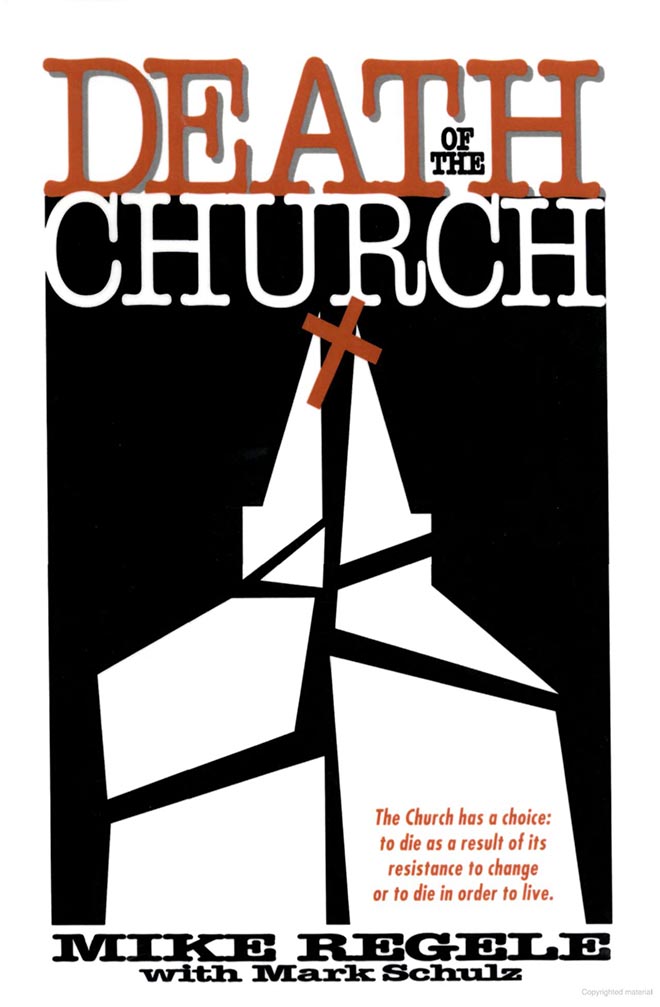Mike Regele of Percept published Death of the Church in 1996. That’s eight years ago. Mike’s a Presbyterian minister living in Irvine, California, and serves as a consultant for churches for churches, regional & national denominational bodies helping them with community and congregational profiles and planning programs. In his 1996 book, Mike explores changes in generational culture, church culture as well as broad shifts such as postmodernism. He says that we can die because of our hidebound resistance to change, or we can die in order to live.

Regele provides six commitments that would make the second option possible:
- Understand dynamics of change at work today in our culture
- Understand various faces of change emerging as we prepare to step into 21st century
- Accept that traditional place of institutional church in our society is dying, and with it the institutional church itself
- Let our traditional forms & structures that are the foundation of the institutional church die
- Wrestle to forge new ways to proclaim Gospel in changing world
- Revision the church for the 21st century, at all levels, from the local congregation to national denominational church office
.
Regele takes the work of Strauss and Howe on generational cycles and challenges the church to consider how current movements have responded to dynamics within emerging generations. The coming cycle, he contends, will need to focus on ‘doing faith’ – practical incarnational expressions that people can take part in. The charismatic renewal was just right for the inner spirituality of the boomers. Now we need to see the building of new movements and organisations that make an impact on society.
Having applied the generational cycle as almost a given, Regele goes on to introduce the unknown, chaotic force of postmodernity as sweeps through like a tidal wave. He says that changes of this order make future generational culture hard to predict.
Regele approaches modernity and postmodernity through the metaphor of ‘bombproof certainty’. This certainty is an issue for people in a modernist framework but not for postmoderns. He provides a useful continuum for understanding the breadth of postmodern thought in this area: the span between the postmodern constructivist – all reality merely a construction of the mind, and the postmodern objectivist – relative certainty without burden of absolute certitude).
The most stirring part of the book was Regele’s call for a new generation of moral-visionary leadership. He says that the church growth movement is often focusing leaders on technique in order to fill churches. Regele says we need people with an ability to think big and bold, with the courage to face a world antagonistic to the church. “We have taken Jesus’ model of servant leadership and reduced it to insipid peonage”. He asks if the church will let leaders lead, or drive them out? He warns, however, that some leaders appear to be visionary, but are driven more by consumptive ambition than moral passion.
Mike has also written Robust Church Development: A Vision for Mobilizing Regional Bodies in Support of Missional Congregations. He co-authored Crossing the Bridge: Church Leadership in a Time of Change, with Alan Roxburgh.
